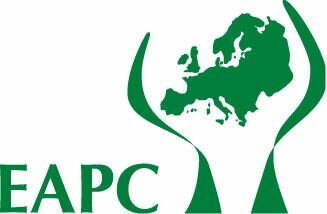|
PRESS RELEASE OMISSION OF PALLIATIVE CARE FROM HIV/AIDS CARE IS CAUSING UNNECESSARY SUFFERING |
|
|
Definition of palliative care WHO defines palliative care as: “An approach that improves the quality of life of patients and their families facing the problems associated with life-threatening illness, through the prevention and relief of suffering by means of early identification and impeccable assessment and treatment of pain and other problems, physical, psychosocial and spiritual”. Embargoed until 14th August 2006 At AIDS 2006 in Toronto, palliative care practitioners make urgent call for increased dialogue and treatment integration
Palliative care practitioners from around the world have joined together to call on HIV/AIDS professionals to include hospice and palliative care at every stage of HIV/AIDS treatment. Currently the focus is almost entirely on treating patients using ART (anti retroviral therapy), with insufficient emphasis on palliation that includes relieving physical, emotional and spiritual pain, alleviating distressing symptoms and supporting patients and their carers. In many countries where HIV/AIDS is prevalent, there is no hospice or palliative care provision whatsoever, meaning that if a patient’s condition is too advanced for them to respond to ART - which in certain regions is the situation in 50% of presenting cases - they are turned away and left to die in pain without any kind of support. At AIDS 2006, 16th International AIDS Conference in Toronto, Sharon Baxter, executive director of the Canadian Hospice Palliative Care Association, Dr Richard Harding, Department of Palliative Care, Policy & Rehabilitation, King’s College London, Dr Faith Mwangi-Powell, executive director of the African Palliative Care Association, Uganda and Dr Liz Gwyther, education and research co-ordinator of the Hospice and Palliative Care Association of South Africa, will be explaining the need for far greater integration of the holistic hospice and palliative care model into HIV/AIDS care both for people receiving ART and those not receiving it, and from the point of diagnosis throughout the entire treatment and care continuum. Baxter comments, “It is wrong to separate HIV/AIDS treatment on the one hand and hospice and palliative care on the other. In reality, they are symbiotic and should operate in tandem, with the palliative care element increasing over time, according to patients’ needs. Palliative care is for the living – both patients and carers - as well as for the dying and is an essential component of HIV care in all settings. As well as easing suffering and restoring quality of life, it can increase the effectiveness of treatment. We urgently need to open a dialogue between palliative care and AIDS care professionals so that we can learn from each other and work together for the good of people living with HIV/AIDS.” The World Health Organisation recognises the importance of hospice and palliative care within HIV/AIDS care. It has stated, “Palliative care is an essential component of a comprehensive package of care for people living with HIV/AIDS because of the variety of symptoms they can experience.” UNAIDS has also described palliative care as “one of the most neglected aspects of health care”. Dr Richard Harding and Dr Liz Gwyther‘s research demonstrates that there is a need to ensure that AIDS patients are able to access hospice and palliative care. Their work has shown that despite ART, HIV is still a life-threatening incurable disease requiring terminal care. Even in wealthy countries where there is universal access to ART, people with HIV are still more likely to die than uninfected people. Furthermore, whether or not people are receiving ART, they need the pain relief and symptom management that palliative care provides. AIDS presents a unique and challenging set of social circumstances with a wide-reaching impact, including stigmatization of sufferers, impoverishment when patients are too ill to work and vulnerable and orphaned children. Palliative care can and does play a critical role in alleviating a number of these issues and it is important that this is recognised by practitioners, donors and policy makers. Baxter continues, “ART makes hospice and palliative care all the more necessary. It’s about helping people to cope with and manage their illness and restoring some quality of life. We wouldn’t want cancer patients to live and die without any form of palliative care. Why shouldn’t AIDS patients, who often experience pain and symptom distress comparable to or greater than people with advanced cancer, receive the same level of care? Hospice and palliative care is a human right.” Call to action Hospice and palliative care organisations from all over the world are coming together at this conference in Toronto and calling for: • Integrated, equitable quality palliative care delivered to the patient, as needed, either in conjunction with ART when initiated, or in its absence • The acknowledgement that hospice and palliative care is a human right • Greater dialogue between HIV and hospice and palliative care professionals • The acceptance of palliative care as an integral part of every health professional’s role • Training for everyone in HIV care teams so that staff have generalist palliative care skills. Training should also cover need assessment skills so that staff know when to refer to specialists • Governments to include hospice and palliative care as part of national health policy and to make resources available • Governments to make oral opioid analgesics available and accessible for patients with life limiting illnesses For more information please contact: At the AIDS 2006 conference: In the UK: Claire Morris, Help the Hospices (UK) – 00447843271402, , www.helpthehospices.org.uk Jo Pratt, Help the Hospices (UK) Press Office – +44 (0)208 699 6566 / +44 (0)7734 566079 / Mitali Atal, The Diana, Princess of Wales Memorial Fund - +44 (0)20 7902 5510 / http://www.theworkcontinues.org/
|
